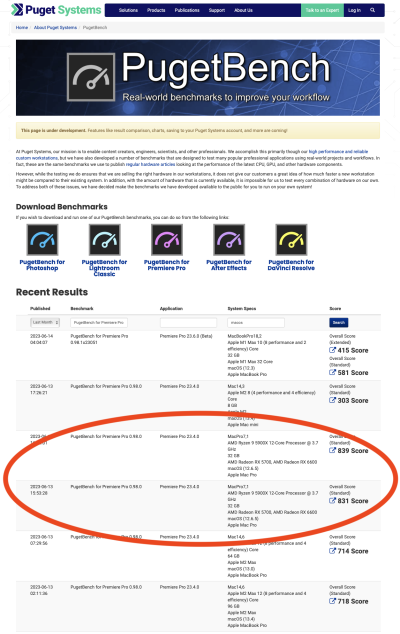Is the new Mac Pro still using ECC RAM?
It's ECC that set the previous Mac Pros apart from the larger customer market, and partly why they cost more.
It turns out that for some market segments, esp. CAD, medicine, but also AAA media, etc. ECC (inc the GPU) is important from a compatibility and liability where high confidence is needed in data integrity. Random bit errors are not uncommon, and can break a project.
There's a corollary in software architecture where going from single threaded to multithreaded approaches can lead to differences in calculations.
I read an analysis of Adobe After Effects SW evolution that it was partly trapped on a single CPU, and no GPU acceleration because to port it to parallel HW caused computational charges, which leads to different data which upsets compositing downstream. Even given that AE is purely a visual effects medium and that there's no "visual" difference of the data in situ, a workflow might be disrupted by side-effects of the data having different numbers, blowing compatibility and therefore contracts.
I don't have direct experience with these specific topics, but I have no trouble seeing a point of complexity that may only be examined in more rarified domains of IT. When companies are involved in huge collaborative ventures with big investments are on the line, they take care to avoid contributing errors to shared data sets.
This concern of data integrity can be more general, and partly explains why Apple has taken to gluing their products together, just to better control reliability. With very deep pockets, a vertical stack, and direct end-user application exposure, Apple needs to concentrate on data integrity in their lineups.
So to put a previous post's observation about Cinebench scores into more gross terms, the 13700K and 4080 are built for gamers, who are, as a market, very tolerant of errors!
But there are plenty of ventures where getting the highest score doesn't matter if you get disqualified from the game due to wrong data.
It so happens that hackintoshing mindset substantially overlaps with gaming market in its bias towards happiness to get something working at all, with less concern for any refined notion of "working."
Apple surely is a far more interested in the topic of correctness of its designs, which is something to keep in mind when comparing oranges to app... (I didn't say it!)




